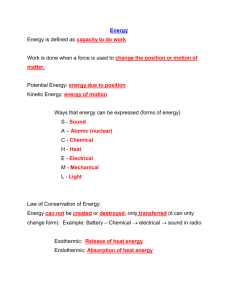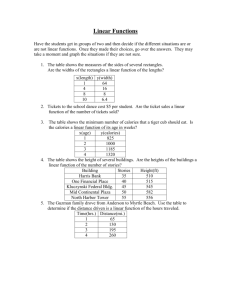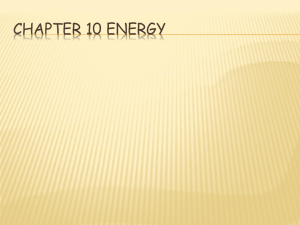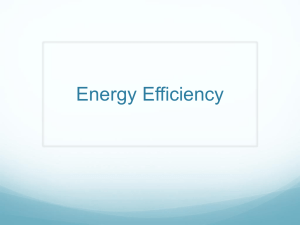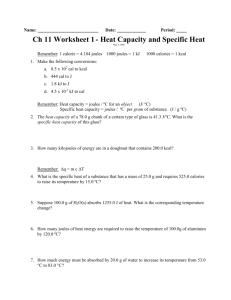Q problems Lecture Notes Q=gCpDT Q= heat in Joules or calories g
advertisement
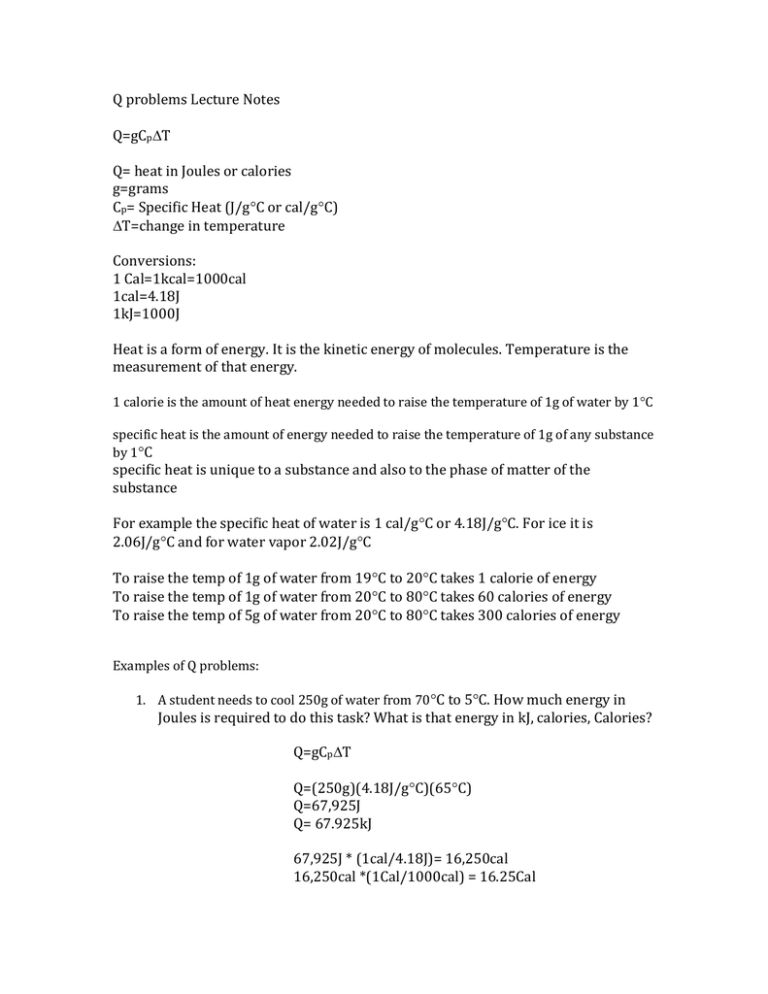
Q problems Lecture Notes Q=gCpT Q= heat in Joules or calories g=grams Cp= Specific Heat (J/gC or cal/gC) T=change in temperature Conversions: 1 Cal=1kcal=1000cal 1cal=4.18J 1kJ=1000J Heat is a form of energy. It is the kinetic energy of molecules. Temperature is the measurement of that energy. 1 calorie is the amount of heat energy needed to raise the temperature of 1g of water by 1C specific heat is the amount of energy needed to raise the temperature of 1g of any substance by 1C specific heat is unique to a substance and also to the phase of matter of the substance For example the specific heat of water is 1 cal/gC or 4.18J/gC. For ice it is 2.06J/gC and for water vapor 2.02J/gC To raise the temp of 1g of water from 19C to 20C takes 1 calorie of energy To raise the temp of 1g of water from 20C to 80C takes 60 calories of energy To raise the temp of 5g of water from 20C to 80C takes 300 calories of energy Examples of Q problems: 1. A student needs to cool 250g of water from 70C to 5C. How much energy in Joules is required to do this task? What is that energy in kJ, calories, Calories? Q=gCpT Q=(250g)(4.18J/gC)(65C) Q=67,925J Q= 67.925kJ 67,925J * (1cal/4.18J)= 16,250cal 16,250cal *(1Cal/1000cal) = 16.25Cal 2. Find the specific heat of iron in Joules per gram degree Celsius if it takes 27,600J of energy to raise 300g of iron at 200C. Q=gCpT Cp=Q/gT Cp= 27,600J/(300g*200C) Cp=0.46J/gC
